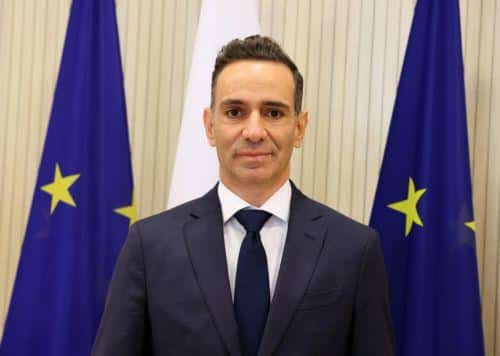Cyprus is in place to become a regional centre for technology and innovation, according to Deputy Minister of Research, Innovation and Digital Policy, Nikodemos Damianou said at the 14th Nicosia Economic Congress.
“Today, with the actions we have taken, we are in a better position than ever to be able to speak in a meaningful way about this issue,” Damianou said.
Damianou said that the European Union, having set its strategy in 2021 to become a leading connectivity and data hub, viewed Cyprus as playing a central role in this. The country’s efforts to enhance investments in interconnectivity and data infrastructure, as well as the potential for advancements in space technologies and artificial intelligence, were part of this plan.
The technology sector in Cyprus has experienced remarkable growth over the last decade and now accounts for 10 per cent of GDP. Damianou said the evolution of the research and innovation ecosystem had laid the foundations for future progress, aimed at advancing the commercialization of its outcomes.
In addition, Damianou revealed an ambitious plan for Cyprus to be the first country fully covered by a high-speed fiber optic network, something he said would be achieved within two years. The plan is set to be announced this month.
Challenges remained, however. Damianou admitted that Cyprus falls behind in digital skills and faces a technology expert deficit. The slow pace at which businesses were adopting new technologies, highligted the need for Cyprus to enhance its digital state to be taken more seriously on the global stage.
Efforts to modernise the state machinery and promote the uptake of digital services among citizens and businesses were ongoing. For the country to achieve digital maturity, it was vital to develop skills, connectivity, and business support, he said.
“A major project is currently underway to define the architecture of the country’s technical infrastructure and to create a truly digitally advanced state,” Damianou said.
He also touched on the future enhancements in digital services, accessible via the Government’s electronic portal and a digital citizen application, as well as the transformative potential of electronic signatures and digital verification of official documents.
Finally, Damianou mentioned that a substantial 23 per cent of the funds from the Resilience and Recovery Plan were allocated to technological upgrading, underlining the government’s commitment to digital transformation.







Click here to change your cookie preferences